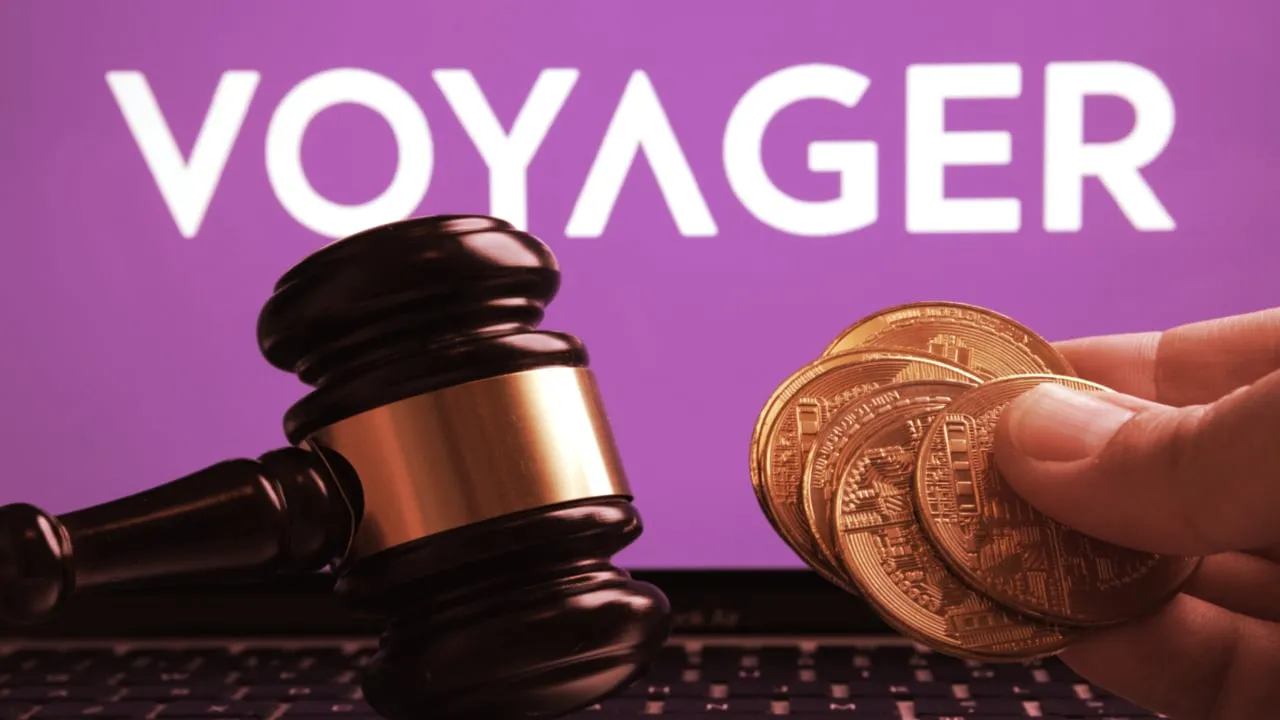The judge overseeing crypto broker Voyager Digital’s bankruptcy proceedings had harsh words for an objection from the Securities and Exchange Commission during a court hearing Monday.
Without certain protections for “persons” involved in Voyager’s restructuring plan, which includes selling its distressed assets to Binance US, there would be “a sword hanging over the heads of anybody who’s going to do this transaction,” Judge Michael Wiles said during the hearing.
Voyager has a pending deal to sell its distressed assets to Binance US, which will then handle returning money to the company’s customers. Wiles was originally going to issue a decision on the plan last week. He has instead given the SEC until tomorrow morning to come up with a more convincing argument against Voyager’s restructuring plan, according to a report from Bloomberg.
In its objection, the SEC wrote that while the commission itself hasn’t taken an official position on whether Voyager’s VGX token is a security, staff at the SEC believe it could be and want to maintain the right to hold the company liable. The SEC also argued that the transactions to return assets to U.S. customers “may violate” its rules against the sale of unregistered securities, thereby calling Binance US an unregistered securities exchange.
It’s typical in bankruptcy proceedings for restructuring plans to include some legal protections for company advisors and executives. But those protections need to be very explicitly spelled out in a disclosure statement, which is what the SEC has taken issue with.
In its objection, the SEC said Voyager sought “absolute immunity from governmental enforcement actions for past or future violations of the law ‘relating to’ the Restructuring Transactions,” for anyone involved in the deal with Binance US.
The SEC is just the latest government entity to scrutinize Voyager’s Chapter 11 restructuring plan. U.S. Attorney for the Southern District of New York Damian Williams called it “blatantly illegal” to seek legal protection from possible civil or criminal fraud charges. The state securities regulator in New Jersey wrote to support Williams’s objection.
Meanwhile, the securities and banking regulators in Texas have taken issue with Voyager not being more deliberate in telling unsecured creditors that their payout could drop from an estimated 51% to 24% of the value of their assets if the company doesn’t win its lawsuit against Alameda Research.
Alameda sued Voyager in January, seeking to recover $446 million in loans it repaid to Voyager Digital. In it, Alameda alleges that Voyager and other crypto lenders “funded Alameda and fueled [its] alleged misconduct, either knowingly or recklessly.” Now Alameda’s lawyers argue that the money is recoverable and should be used to repay Alameda’s creditors, not Voyager’s.
Texas regulators have also called attention to Binance US’s Terms of Use, saying that it asks customers to acknowledge that “Binance.us relies upon Binance.com and other ‘Related Parties’ to provide services to Binance US,” Abigail Ryan, Texas Attorney General, wrote in a February court filing, arguing that not all jurisdictions where customer data could be shared maintain the same financial data protections as the U.S.
There’s been some sign of reconciliation, though. The SEC’s objection echoes one raised two weeks ago, when the Federal Trade Commission called the same language a “disguised discharge” to protect Voyager from being held accountable for “deceptive and unfair marketing.”
Since raising its objection, the FTC has negotiated with Voyager’s legal team to come up with “certain carve-out language intended to address the FTC’s objection,” attorney Katherine Johnson wrote on behalf of the FTC in a letter filed with the court on Friday.
If Voyager Digital’s deal to sell its distressed assets to Binance US isn’t allowed to be finalized, the bankrupt crypto broker could have to open a third round of bidding.
In September, Voyager announced that Sam Bankman-Fried’s trading desk, Alameda Research, had been selected to acquire its distressed assets. But when FTX itself collapsed in November, Alameda went down with it and Voyager had to scrap that plan.
After reopening the bidding process, Voyager announced in December that it had a preliminary agreement for Binance US to acquire its assets. The company even went so far as creating Binance US accounts for its U.S.-based clients—if they live in states where Binance US is allowed to operate. Customers who live in Hawaii, New York, Texas, and Vermont could have to wait up to six months longer than the rest.

